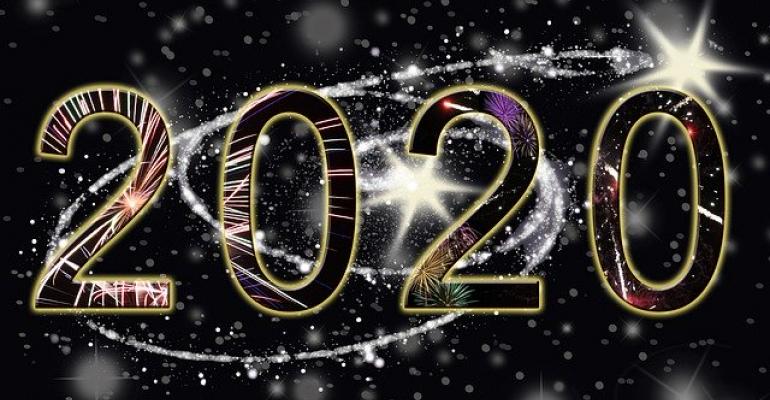The pace of innovation and growth in the meetings and events industry accelerated rapidly in 2019. It’s exciting to think about what could happen in 2020! After attending over a dozen industry conferences last year and speaking with so many corporate planners, travel managers, hospitality suppliers, technology companies, and many others, I’ve put together a master wishlist of changes that could deliver a more effective, efficient industry. Here are the top five innovations and advances meeting professionals would like to see:
Let There Be ROI
It’s been over 25 years since the event technology industry was born, yet we still lack a clear, consistent, and universal methodology to calculate event ROI. Think of how cost-per-click (CPC) and cost-per-thousand (CPM) impression metrics transformed the digital advertising industry. Let’s face it, attendance rate data is not enough, and integrating with CRM and marketing automation software still leads us to metrics that are “fuzzy” at best. We’ve all heard about return on objective and return on experience—but those don’t cut it either. As the events industry works to create and align on a unique set of metrics (our version of CMP and CPC), the industry will find its next major growth explosion. Events, especially micro-events, are having an increasing impact in today’s noisy digital world. It’s now time for the industry to define the metrics to prove it.
Leading with Sustainability
Events are some of the most wasteful activities in the world. The amount of food waste, single-use installations, paper, plastic, and disruption is serious, and our industry requires a more responsible approach to the future. The industry wants clear sustainability programming offered by suppliers, and incentives for planners to use these choices. The industry is looking to see a greater emphasis on sustainability, driven by food-waste programs, environmentally responsible choices, and other programs to lower the waste connected to events. A universal sustainability scoring system would be a great industry initiative for 2020.
“Not Available” API
Speaking of waste, there are billions of dollars wasted every year on the outdated eRFP process. Buyers and suppliers spend countless hours each year inquiring and responding to requests that are irrelevant—or worse yet, not responding at all. The industry is clamoring to modernize the process. However, we have also come to learn that “instant booking” does not work in the meetings and events industry because planners have no tolerance for uncertainty and the vast majority of events require customization. But imagine how much waste could be avoided with one simple step: a “not available” API that blocks dates or adds you to a waiting list. This simple step would radically reduce operational inefficiency for both properties and buyers. Now just add a “live contact directory” that allows event inquiries to go to the right person at every venue in the world, and you’ll find the entire industry growing leaps and bounds.
Universal Event Contracts
There are cancellation rules, penalties, and state jurisdiction involved with every purchase we make today. Do you have your lawyer review your contract when you purchase a flight? Well, the events industry still wastes billions every year reviewing the same contracts over and over. It’s time for the industry to align on a universal event contract, particularly for micro-events, which are 60 percent to 80 percent of all corporate events. There are a couple of key negotiated terms such as attrition, but these can be isolated around a universal set of legal terms, similar to “change penalties” for flights. Resolving this bottleneck would create rapid growth and efficiency in the industry. Let’s make 2020 the year for a universal event contract! Interested in participating in this initiative? Click here to participate in the study.
Modern End-to-End Technology
Today, the event technology landscape is primarily comprised of two camps: legacy end-to-end technologies and modern point solutions. In the legacy camp, there is a sense of dissatisfaction brewing around the complex and expensive offerings in the market. Many professionals enjoy invitation apps, venue booking sites, surveys, and so forth, but feel limited by their singular capabilities and ultimately revert back to complex legacy applications. A common wish I’ve heard across the industry this past year is for modern technology suites (i.e. end-to-end solutions) to replace the complex legacy products that dominate the market today.
Ron Shah is the founder and CEO of Bizly, the enterprise platform for meetings and micro-events. Bizly powers customer and employee communities across both onsite and offsite events, with a full suite of procurement and analytics tools to drive compliance and continuous improvement. Prior to Bizly, Ron was the founder of Jina Ventures, a global technology venture capital firm. Ron was also an on-air contributor on CNBC for three seasons and has his MBA from New York University School of Business.






